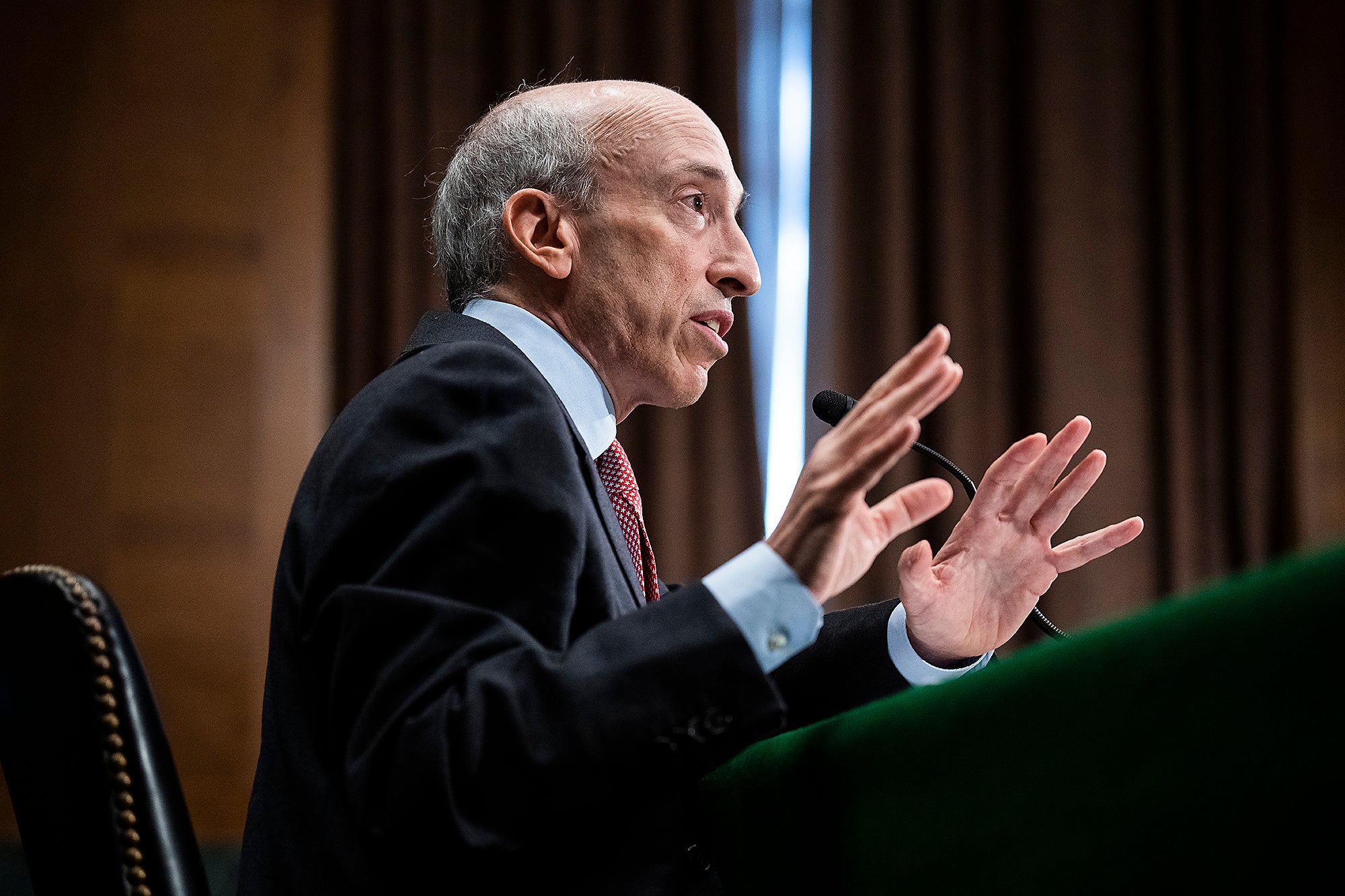SEC Climate Disclosure Rule Represents Important Progress, But Falls Short on Key Metrics of Financial Risk
Final rule improves upon status quo, but still enables companies to conceal financial risks
Contact
Today, the U.S. Securities and Exchange Commission (SEC) issued its final rule requiring public companies to disclose climate-related risks to their businesses and their plans, if any, to manage or mitigate them. Although the rule represents an important step forward for investors seeking greater transparency on companies’ handling of climate risks, the rule is significantly weaker than the proposed version from March 2022.
The Sierra Club and Sierra Club Foundation, represented by Earthjustice, are considering challenging the SEC’s arbitrary removal of key provisions from the final rule, while also taking action to defend the SEC’s authority to implement such a rule. More information on potential legal actions will be released in the coming days.
Even though 97% of investor comments supported the draft rule’s mandatory disclosure of what are known as Scope 3 emissions, the SEC capitulated to industry pressure and meritless legal threats by eliminating those requirements from the final rule. Scope 3 emissions, which result from a company’s supply chains and the use of its products, account for the largest share of most companies’ greenhouse gas emissions, particularly for the most polluting industries.
In addition to dropping requirements for companies to report their Scope 3 emissions, the rule also weakens provisions pertaining to more direct greenhouse gas emissions (Scopes 1 and 2) by allowing companies to decide for themselves whether or not this information is “material” and thus subject to disclosure. The rule also eliminates key requirements for companies to quantify climate-related impacts to their assets and expenditures in financial statements.
On the positive side, the rule requires that companies with plans addressing material transition risks disclose important details about those plans and to quantify material expenditures incurred. Numerous companies are facing material transition risks in adjusting to the rapid decarbonizing of the economy. These disclosures will help investors evaluate the seriousness of their efforts to decarbonize operations and value chains.
In response to the rule, Earthjustice, the Sierra Club, and the Sierra Club Foundation issued the following statements:
Hana Vizcarra, Senior Attorney at Earthjustice:
“The SEC took an important and long overdue step to protect investors, the integrity of our markets, and the retirements of everyday Americans. Climate change threatens every facet of the U.S. economy, so the SEC is well within its authority and obligation to require more reliable information for investors. But the SEC is condoning misleading and incomplete disclosures that open investors to risk by dropping the Scope 3 emissions disclosure requirements. Investors deserve better than where the SEC landed with its disclosure rule.”
Ben Jealous, Executive Director of the Sierra Club:
“Thanks to the SEC’s actions, companies will finally be required to provide reliable and comparable information to investors and the market about some of their climate-related financial risks. While a positive step, this rule falls significantly short of what’s needed. Greenhouse gas emissions are a critical measure of a company’s handling of climate risk and Scope 3 emissions represent the vast majority of emissions from most companies.
“Allowing companies to continue hiding a full accounting of their climate pollution keeps investors, including the Sierra Club and our members, in the dark about critical information needed to make informed choices about companies’ financial risks, including risks stemming from the failure to invest in the transition to a decarbonized economy.”
Dan Chu, Executive Director of Sierra Club Foundation:
“As an investor, we expect full transparency about a company’s fundamentals, especially climate-related risks that pose serious negative financial consequences. Without higher accountability standards, companies can withhold critical information that prevents us from making informed investment decisions rooted in full due diligence. Today’s decision lays an important foundation, however, unless the SEC implements stronger climate risk disclosure requirements, the agency is simply falling short of its mission to protect investors.”
Background
The SEC proposed its climate risk disclosure rule in March 2022 to address the difficulties facing investors and other market participants in assessing companies’ handling of climate-related risks. The proposed rule required more rigorous, reliable, and consistent disclosures, and provided specific information on key climate risk metrics. It was designed to provide greater transparency for investors and other market participants balanced with companies’ need for regulatory clarity.
In June 2022, during the original comment period, the Sierra Club and more than 70 allied organizations submitted technical and legal comments to the SEC, alongside nearly 15,000 comments submitted by Sierra Club members and supporters. The Sierra Club also submitted comments in November 2022 during a supplemental comment period, and again in February 2023, April 2023, and October 2023 to reiterate the growing need for a strong final rule, including Scope 3 emissions disclosure requirements. The Sierra Club Foundation joined other investors in submitting comments on the rule as well as the 2021 request for information, highlighting the importance of this information to their investment decisions. Earthjustice also submitted comments supporting the proposal and urging the SEC to finalize strong climate risk disclosure requirements.
The final rule comes amid a growing consensus among financial regulators in the U.S. and around the world that climate change poses significant risks to financial systems, and that securities regulators have an important role to play in mitigating those risks in order to protect investors and the economy. Even fossil fuel companies like Exxon and Chevron have begun to selectively concede that their assets are at risk for impairment due to climate change and the energy transition, which could have major impacts on investors and markets.

About Earthjustice
Earthjustice is the premier nonprofit environmental law organization. We wield the power of law and the strength of partnership to protect people's health, to preserve magnificent places and wildlife, to advance clean energy, and to combat climate change. We are here because the earth needs a good lawyer.